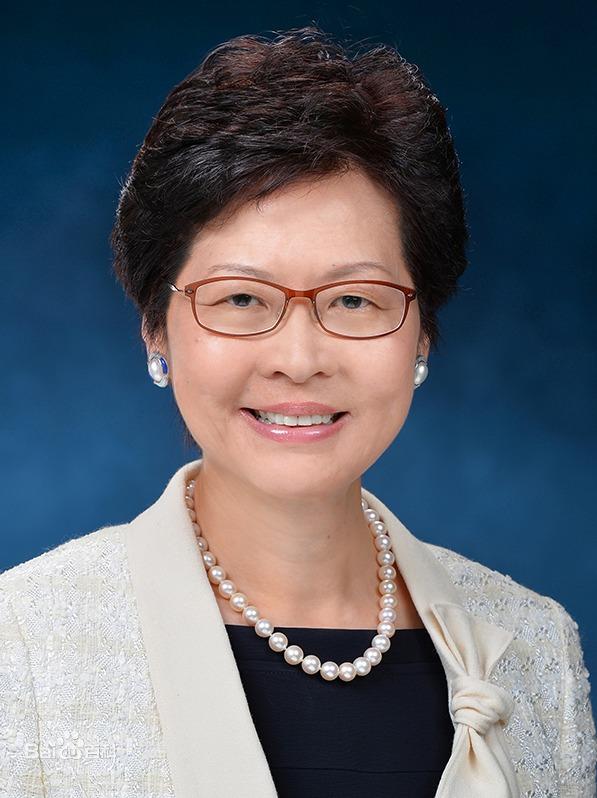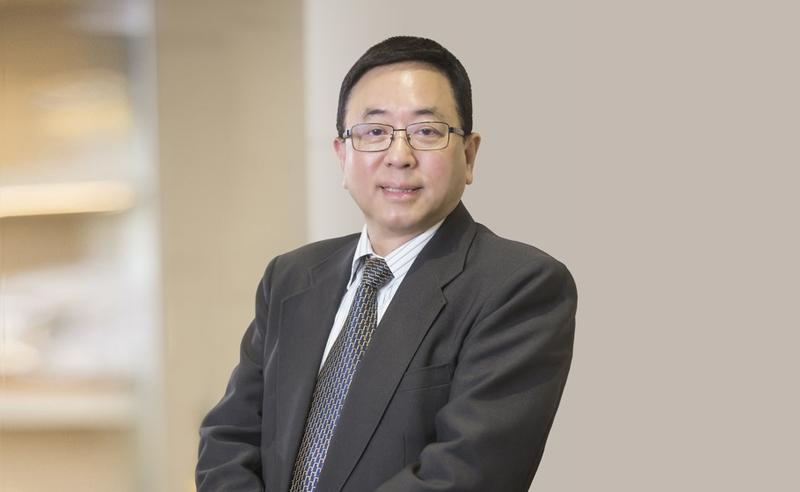
The Guangdong-Hong Kong-Macao Greater Bay Area is expected to be built into a world-class cluster with enhanced connectivity and improved green development in the future, speakers said at the latest Vision China event.
The GBA Development Forum (Guangzhou) & Vision China was virtually held on Wednesday under the theme "Greater Bay Area in the New Era: Toward a Green Future Built on Connectivity and Sharing".
The event, co-held by China Daily and the information office of Guangzhou municipal government, brought together officials, experts and entrepreneurs to discuss topics related to the Greater Bay Area such as its development prospects and provide advice on the construction of the area in the new era. And two seminars themed "Low-Carbon Sustainable Development" and "Connectivity for Shared Prosperity" were held during the event.
 Erik Solheim, former executive director of the United Nations Environment Programme. (PHOTO / CHINA DAILY)
Erik Solheim, former executive director of the United Nations Environment Programme. (PHOTO / CHINA DAILY)
Erik Solheim, former executive director of the United Nations Environment Programme, said in the opening remarks that the GBA is expected to play a significant role in the green shift in the world.
ALSO READ: GBA: A springboard for greater chances
Citing the world's recent green efforts, Solheim said the Greater Bay Area, which is home to prominent high-tech companies driving the green economy, is at the forefront of those green shifts.
"I also encourage the Greater Bay Area to take an interest in the fair transition for China, because Guangdong for sure will benefit fantastically from the green shift," he said. "There will be millions of new jobs, a better environment for people and you will contribute to the great global course of fighting climate problems."
 Carrie Lam Cheng Yuet-ngor, chief executive of the Hong Kong Special Administrative Region. (PHOTO / CHINA DAILY)
Carrie Lam Cheng Yuet-ngor, chief executive of the Hong Kong Special Administrative Region. (PHOTO / CHINA DAILY)
Carrie Lam Cheng Yuet-ngor, chief executive of the Hong Kong Special Administrative Region, highlighted the considerable achievement the GBA has made in the recent years, saying Hong Kong will make more efforts to boost the connectivity and foster low-carbon and green development.
According to her, the SAR government hopes to strengthen exchanges and cooperation with other cities in the area in the development of low-carbon communities, the development of carbon reduction technologies and talent training, to jointly contribute to the country's move toward carbon neutrality goals.
 Zhou Shuchun, publisher and editor-in-chief of China Daily. (PHOTO / CHINA DAILY)
Zhou Shuchun, publisher and editor-in-chief of China Daily. (PHOTO / CHINA DAILY)
Zhou Shuchun, publisher and editor-in-chief of China Daily, said the GBA is one of the regions with the highest degree of openness and the strongest economic vitality in the country, playing a significant strategic role in the overall development of the country.
READ MORE: GBA seen as new engine driving China's economic growth
He noted Hong Kong, Macao and the nine cities in the Pearl River Delta have strong economic strength, incomparable geographical advantages and solid foundation for cooperation, injecting strong impetus to the development of the Pearl River Delta and even the whole country.
 Guo Yonghang, acting mayor of Guangzhou. (PHOTO / CHINA DAILY)
Guo Yonghang, acting mayor of Guangzhou. (PHOTO / CHINA DAILY)
Zhou's views were echoed by Guo Yonghang, acting mayor of Guangzhou. Guo said the Greater Bay Area, despite the COVID-19 impact, has made steady progress in terms of institutional mechanisms, infrastructure connectivity, technological innovation, industrial development and exchanges, showcasing that the cooperation between Guangzhou, Hong Kong and Macao enjoys a solid foundation and broad prospects.
Zhang Xiaoqiang, executive vice-chairman and CEO of China Center for International Economic Exchanges, said the GBA is a template of high-quality development, as well as a strategic pillar supporting the new paradigm of high-level opening-up.
Zhang said the area should fully implement the development concepts of innovation, coordination, green, openness and sharing to realize high-quality development.
Looking ahead, Zhang expected more creative integrated policies, measures and rules will be formulated and applied to cities in the Greater Bay Area. He said the area needs to focus on rule and mechanism connectivity among the cities and further upgrade the level of market integration.
More effort should also be made to boost technology innovation, promote upgrading of the industrial structure and green and low-carbon development, Zhang added.
 Zhang Xiaoqiang, executive vice-chairman and CEO of China Center for International Economic Exchanges. (PHOTO / CHINA DAILY)
Zhang Xiaoqiang, executive vice-chairman and CEO of China Center for International Economic Exchanges. (PHOTO / CHINA DAILY)
"I firmly believe that with the support of the central government and the engagement of all circles of society, Guangdong, Hong Kong and Macao can build the GBA into a leading landmark worldwide and a world-class city cluster," he said.
In February 2019, the CPC Central Committee and the State Council jointly released the Outline Development Plan for the Guangdong-Hong Kong-Macao Greater Bay Area, marking a new phase in the construction of the Greater Bay Area.
According to the plan, the main focus will be building the area into a vibrant world-class city cluster, a globally influential international innovation and technology hub, a key component of the Belt and Road Initiative and a showcase for in-depth cooperation between the Chinese mainland, Hong Kong and Macao. It will also become an ideal place to live, work and visit, the document said.
 Peter Helis, chief advisor of Guangzhou Huangpu District. (PHOTO / CHINA DAILY)
Peter Helis, chief advisor of Guangzhou Huangpu District. (PHOTO / CHINA DAILY)
Having lived in the GBA for almost two decades, Peter Helis, chief advisor of Guangzhou Huangpu District, believed it is one of the most vibrant and possibly the fastest developing area in the world.
"I remember the slogan quite well, which was 'from made in Guangdong to create in Guangdong'. The drive gained such momentum that the GBA now not only counts half of the annual patent registrations of China but is also internationally recognized as an innovative powerhouse," he said.
ALSO READ: Bay Area 'poised to be world's top green economy'
Going forward, Helis said more efforts are needed to increase its world recognition, build an environment suitable for working and living and attract more talents.
 Lionel M Ni, president-designate of the Hong Kong University of Science and Technology (Guangzhou). (PHOTO / CHINA DAILY)
Lionel M Ni, president-designate of the Hong Kong University of Science and Technology (Guangzhou). (PHOTO / CHINA DAILY)
Reaping the benefits of China's reform and opening-up over the past 40 years, the Greater Bay Area has attracted talent, capital, and other essential resources from all over the world, which has helped the area create a comprehensive industrial chain, and an experimental, devoted, and inclusive vibe, said Lionel M. Ni, president-designate of the Hong Kong University of Science and Technology (Guangzhou).
READ MORE: GBA leading the charge for carbon neutrality
"By providing novel technologies that help entrepreneurs grow their business, HKUST (Guangzhou) will become a powerful engine in driving the GBA development through innovation," Ni said.
 Sio Chi Wai, chairman of the Macao Development Strategy Research Center. (PHOTO / CHINA DAILY)
Sio Chi Wai, chairman of the Macao Development Strategy Research Center. (PHOTO / CHINA DAILY)
"Meanwhile, the GBA also possesses favorable factors that helps HKUST (Guangzhou)'s mission in driving a paradigm shift in higher education and nurture out-of-the-box talent."
Citing the Outline Development Plan for the Guangdong-Hong Kong-Macao Greater Bay Area, Sio Chi Wai, chairman of the Macao Development Strategy Research Center, said there is an individual chapter talking about development of ecological civilization, clearly stating the requirement of the environmental protection and governance.
Noting some systematic discrepancies among the cities in the region, Sio said the area should build a more consistent, closer and efficient mechanism to improve the environment governance, which will help improve the efficiency of making the related policies and laws.
For Nathan Keith Williams, a video producer of China Daily, the GBA stood out with its strong economic strength, booming manufacturing and new technologies, a modern and comprehensive transport system and top level of internationalization.
 Nathan Keith Williams, a video producer of China Daily. (PHOTO / CHINA DAILY)
Nathan Keith Williams, a video producer of China Daily. (PHOTO / CHINA DAILY)
Citing a recent 12-day tour of the area, Williams said he has seen tremendous changes and distinctive development models that have taken place in the Greater Bay Area in terms of technological manufacturing and innovation.
"During my travels I have seen a vibrant and internationally competitive first-class bay area, with distinctive geographical advantages, robust economic strength, a high concentration of key factors of innovation, advanced level of internationalization, and solid cooperation foundations," he added.


